Skills Development for Smart Specialization - Speakers
25 October 2024
Modified: 28 March 2025
Reading time: 26 minute(s)
| About | Registration | Program | Speakers | Livestreaming | Accommodation | Getting here | Photos | Documents |
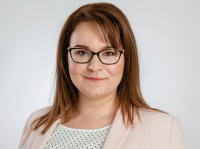 Day 2 – 3 December, 2024: 9:30 – 10:30 Panel discussion: Inter-dependence between economic growth, innovation and skills in the era of digitization and green transition: the regional perspective
Day 2 – 3 December, 2024: 9:30 – 10:30 Panel discussion: Inter-dependence between economic growth, innovation and skills in the era of digitization and green transition: the regional perspectiveKatalin Arany has been with the Hungarian Centre of Excellence for Molecular Medicine (HCEMM) since 2019, playing a key role in the establishment and growth of Hungary’s flagship biomedical research institute. In her current role as Project Manager of the HCEMM EU Teaming project, she focuses on fostering collaboration between academia, industry, and policymakers to advance innovation and skills development. Katalin began her career as a Project Manager at a Regional Development Agency, gaining valuable experience in implementing projects aimed at regional development. She later served as an International Relations Officer for a regional government in Hungary, where she built cross-border networks and facilitated international cooperation. These complementary roles have given her a unique ability to bridge regional and international perspectives in her current work. Holding a degree in International Relations from the University of Szeged (SZTE) and a Research and Innovation Manager specialization from Budapest Corvinus University, Katalin is passionate about aligning research with societal needs. She actively contributes to Europe’s goals in digitization and the green transition, focusing on creating inclusive frameworks for skills development and innovation across diverse regions.
Day 1 – 2 December, 2024: 15:45-16:45 – Smart Specialization strategy implementation
Day 2: 11:30-12:30 Parallel sessions - Breakout session 1. Identifying the types of skills that could support today’s challenges (e.g. industrial transformation, green transition, and digitalization)
 Day 2 – 3 December, 2024: 11:30-12:30 – Panelist at Breakout session 3. – Horizon Europe Cluster 2 and Societal Challenge 6: Inclusive, innovative and reflective societies – How to valorize the outcomes of successful Cluster 2 projects in service of reaching S3 goals.
Day 2 – 3 December, 2024: 11:30-12:30 – Panelist at Breakout session 3. – Horizon Europe Cluster 2 and Societal Challenge 6: Inclusive, innovative and reflective societies – How to valorize the outcomes of successful Cluster 2 projects in service of reaching S3 goals.
Dr. Kimberly Couvson-Liebe is National Contact Point (NCP) for Horizon Europe Cluster 2 “Culture, Creativity and Inclusive Society” and Scientific Officer in the department “Future Societies” at DLR Projektträger in Bonn, Germany. She is also part of the coordination team of the EU-funded project Net4Society, the transnational network of Horizon Europe Cluster 2 National Contact Points, where one of her core focuses is on SSH Integration. Kimberly has regularly presented on the issue of interdisciplinary research collaboration as a key aspect of European research policy in the previous and current EU Framework Programmes. Prior to her current roles, Kimberly also served as Societal Challenge 6 NCP during Horizon 2020 and was part of the coordination team of the EURAXESS Links project. Originally from California, Kimberly has lived in Germany since 2008. She holds a PhD in Sociocultural Anthropology from Cornell University (USA), a Masters in Regional Studies East Asia (China concentration) from Harvard University (USA), and is fluent in English, German, and Mandarin.
 Day 2 – 3 December, 2024: 13:30 – 14:30 – Panelist – Panel discussion: To space and beyond: Transferable skills for the space sector - needs, provisions, challenges
Day 2 – 3 December, 2024: 13:30 – 14:30 – Panelist – Panel discussion: To space and beyond: Transferable skills for the space sector - needs, provisions, challengesDr. László Csurgai-Horváth is a habilitated associate professor at the Department of Broadband Infocommunications and Electromagnetic Theory at the Faculty of Electrical Engineering and Informatics of the Budapest University of Technology and Economics (BME). His areas of expertise include wave propagation and modeling issues in terrestrial and satellite radio communication, as well as the study of the system-level design of space devices. He contributed to the development and launch of the space engineering master’s program at BME, where he currently serves as an university lecturer and as the chair of the program’s professional committee.
 Day 1 – 2 December, 2024: 15:45-16:45 – Moderator – Panel discussion: Smart Specialization strategy implementation
Day 1 – 2 December, 2024: 15:45-16:45 – Moderator – Panel discussion: Smart Specialization strategy implementationDay 2 – 3 December, 2024: 9:00 – 9:30 – Speaker – Introducing the S3 CoP Observatory
Coen de Graaf joined IDEA Consult as an Expert on Innovation, Competitiveness & Sustainability as per January 2024.
Within IDEA he is active in the services offered by S3CoP, I-3 projects and the submission of new proposals.
After his study “Commercial Economy” at The Hague University of Applied Sciences, Coen completed his economic and management education at Vlerick Business School in Ghent. Since 1990 Coen has been working for several international companies as a commercial director.
In 2007 he started advising and training organizations in their transitions from strategy to operations, also on developing the skills to manage and execute that strategy.
Before joining IDEA, Coen has been Project Manager for Interregional Innovation projects also involved in the Vanguard Initiative – both for the Dutch province of Noord-Brabant during 8 years. The Vanguard Initiative provides a platform for regions, companies, clusters, and knowledge institutions in Europe to meet and find new innovative solutions together. Coen specializes in innovation and strategy in the high-tech- and energy sector in Europe. He has been involved in the E.E.R., PRI, ERA-Net, and the I-3 instrument and has multi years’ experience in the development of Regional Innovation Strategies, Operational programs, Interreg projects, Horizon projects and cascade funding.
Within IDEA he is active in the services offered by S3CoP, I-3 projects and the submission of new proposals.
After his study “Commercial Economy” at The Hague University of Applied Sciences, Coen completed his economic and management education at Vlerick Business School in Ghent. Since 1990 Coen has been working for several international companies as a commercial director.
In 2007 he started advising and training organizations in their transitions from strategy to operations, also on developing the skills to manage and execute that strategy.
Before joining IDEA, Coen has been Project Manager for Interregional Innovation projects also involved in the Vanguard Initiative – both for the Dutch province of Noord-Brabant during 8 years. The Vanguard Initiative provides a platform for regions, companies, clusters, and knowledge institutions in Europe to meet and find new innovative solutions together. Coen specializes in innovation and strategy in the high-tech- and energy sector in Europe. He has been involved in the E.E.R., PRI, ERA-Net, and the I-3 instrument and has multi years’ experience in the development of Regional Innovation Strategies, Operational programs, Interreg projects, Horizon projects and cascade funding.
John EDWARDS - Secretary General, European Association of Institutions in Higher Education (EURASHE)
 Day 1 – 2 December, 2024: 14:15-14:45 – Plenary session: Setting the scene for: ’Defining a framework of skills development for smart specialization’
Day 1 – 2 December, 2024: 14:15-14:45 – Plenary session: Setting the scene for: ’Defining a framework of skills development for smart specialization’
Day 2 – 3 December, 2024: 11:30-12:30 – Panelist at Breakout session 1. – Identifying the challenges and bottlenecks (e.g.: green transition, industrial transition, digitalization) that may affect the directions and expected goals of skills development; identifying related target groups and other stakeholders
John Edwards is Secretary General of EURASHE, the European Association for the Applied Sciences in Higher Education. In this role he acts as an interface between European policy makers and EURASHE members in the fields of higher education, employment, research, enterprise, and regional policy. John previously worked for the European Commission’s Joint Research Centre between 2011 and 2020, managing projects on the role of higher education and vocational excellence in Smart Specialisation. John holds degrees from the University of St Andrews, the College of Europe in Bruges, and Newcastle University, where he completed his PhD in economic geography. He is a dual Portuguese/UK national.
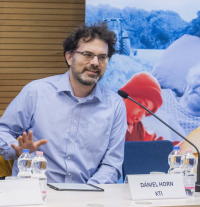 Day 2: 11:30-12:30 Parallel sessions – Breakout session 2. Horizon Europe Cluster 2 and Societal Challenge 6: Inclusive, innovative and reflective societies – How to valorize the outcomes of successful Cluster 2 projects in service of reaching S3 goals
Day 2: 11:30-12:30 Parallel sessions – Breakout session 2. Horizon Europe Cluster 2 and Societal Challenge 6: Inclusive, innovative and reflective societies – How to valorize the outcomes of successful Cluster 2 projects in service of reaching S3 goalsDániel Horn is a senior fellow and head of the Education and Labour Economics research unit at the Institute of Economics, HUN-REN KRTK, and an associate professor at Corvinus University of Budapest.
 Day 2 – 3 December, 2024: 11:30-12:30 – Parallel sessions: Speaker – Breakout session 2. – Identifying the types of skills that could support industrial transformation in Europe by providing adequate resources; identifying related target groups and other stakeholders
Day 2 – 3 December, 2024: 11:30-12:30 – Parallel sessions: Speaker – Breakout session 2. – Identifying the types of skills that could support industrial transformation in Europe by providing adequate resources; identifying related target groups and other stakeholdersMarko Hren serves as a head of unit coordinating Slovene Sustainable Smart Specialisation Strategy (S5). Digitalisation, Deep Tech and Transition to Circular Economy are central to S5 which is understood as key transformative policy for Slovene Economy. S5 integrates innovation, entrepreneurship, internationalisation and human resources development policies.
Hren possesses extensive record of ICT development, humanities research and social activism. His experiences involve tech and social innovation in all spheres of quintuple helix. From 1983 to 1985 he managed a first eClassRoom in the region, installed at best performing secondary school in mathematics by ICT enterprise where he was employed. Later, he established first open ICT center for empowerment of NGOs and artists to propel the digital competences of wider target groups. He served as independent node for Association for Progressive Communications, providing (pre) internet access to communities. In 2002 he joined the newly established Ministry of Information society to foster Digital Agenda, increase digital skills; he designed a project equipping regional centers for ECDL training scheme before Slovenia joined EU in 2004.
Besides working for the government, he - In the past 25 years - also serves as an independent evaluator and monitoring expert nationally and for centralised EU instruments.
Besides working for the government, he - In the past 25 years - also serves as an independent evaluator and monitoring expert nationally and for centralised EU instruments.
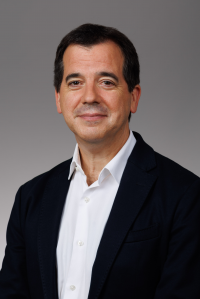 Day 1 – 2 December, 2024: 13:00 – 14:15 – High-level opening session, Flash presentation of Spanish presidency on priorities and results in smart specialization
Day 1 – 2 December, 2024: 13:00 – 14:15 – High-level opening session, Flash presentation of Spanish presidency on priorities and results in smart specializationMikel Irujo Amezaga. PhD in European Law, he worked in Thomson Reuters, world's leading source of legal intelligent information, from 1996 to 2015. After two periods of leave to work in the European Parliament (1999-2002 as assistant and 2007-2009 as Member of the European Parliament, MEP), he went back to the company in 2009, being responsible of the EU Procurement and Programs Unit. In September 2015, he is appointed as the Head of the Navarra Delegation in Brussels and Member of the Committee of the Regions. He has been the rapporteur on two Committee of the Regions opinions on Smart Specialisation Strategies (RIS3) and inter-regional cooperation and, secondly, Strengthening Innovation in Europe's Regions: Strategies for resilient, inclusive and sustainable growth. Involved in several networks, he was chairing the Vanguard Initiative Network in 2018. September 2019 he was appointed as Director General for Foreign Action of the Government of Navarra, and since February 2021, he is appointed as Regional Minister for Economic and Business Development en Gobierno de Navarra. After the last local elections in 2023, appointed as Regional Minister for Industry and Ecological and Digital Transition.
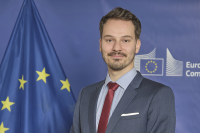 Day 2 – 3 December, 2024: 13:30 – 14:30 – Panelist – To space and beyond: Transferable skills for the space sector - needs, provisions, challenges
Day 2 – 3 December, 2024: 13:30 – 14:30 – Panelist – To space and beyond: Transferable skills for the space sector - needs, provisions, challengesMy name is David Jelinek, I am from the Czech Republic, and my academic background is in Anthropology. I spent almost two years at the Ministry for Social Affairs and Labour in Czechia working on the Czech Presidency in the Council of the European Union. I joined the Directorate-General for Defence Industry and Space (DG DEFIS) at the European Commission almost two years ago. I am working as a Policy Officer in the unit responsible for Space Innovation, New Space and Space Defence. Among others, I work on the CASSINI Initiative, specifically on the Hackathons or the EU Space Academy, and I am also in the team for Skills, where we created the Space Career Launchpad and are currently working on the CASSINI Space Camp. I am the DEFIS Youth Correspondent, responsible for youth mainstreaming, bringing up issues considering the youth etc.
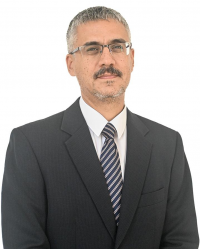 Day 1 – 2 December, 2024: 13:00 – 14:15 – Welcome and opening speech
Day 1 – 2 December, 2024: 13:00 – 14:15 – Welcome and opening speechDr. Gábor Kemény is an experienced professional specializing in public service, institutional development, and agricultural economics. Currently serving as Vice-Rector for Institutional Development at the Ludovika University of Public Service, he also holds the positions of Associate Professor. Dr. Kemény has extensive professional expertise, having previously worked in senior management roles at OTP Bank Ltd., where he contributed significantly to the Green Program Directorate and agricultural risk management initiatives.
He began his career at the Research Institute of Agricultural Economics, where he held various leadership roles, including Director of Economic Analysis and Interim General Director. Over the years, he has developed a strong academic background, earning a PhD in History from Peter Pazmany Catholic University and an MSc in Economic Sciences from the Budapest University of Economic Sciences. His work is deeply rooted in fostering sustainable practices and advancing institutional strategies within the public sector and agricultural domains.
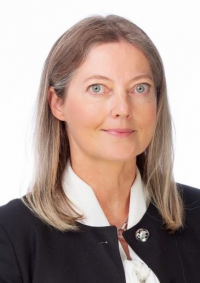 Day 2 – 3 December, 2024: 9:30 – 10:30 Panel discussion: Inter-dependence between economic growth, innovation and skills in the era of digitization and green transition: the regional perspective
Day 2 – 3 December, 2024: 9:30 – 10:30 Panel discussion: Inter-dependence between economic growth, innovation and skills in the era of digitization and green transition: the regional perspectiveLea Myyryläinen is a seasoned leader with over 20 years of experience driving advancements in telecom, AI, sensor technologies, and digital ecosystems. As Regional Director North at EIT Digital, she spearheads deep-tech innovation and education initiatives across the Nordic region, building partnerships that deliver scalable and transformative solutions.
Lea holds a Master’s in Electrical Engineering from Aalto University, specializing in Control and Automation Engineering with a minor in International Marketing and Business Strategy.
A patent holder and expert in strategic sourcing, portfolio management, and business negotiations, she excels at transforming cutting-edge technologies into scalable growth strategies that foster innovation and resilience in digital ecosystems.
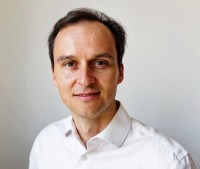 Day 2 – 3 December, 2024: 13:30 – 14:30 Panel discussion: To space and beyond: Transferable skills for the space sector - needs, provisions, challenges
Day 2 – 3 December, 2024: 13:30 – 14:30 Panel discussion: To space and beyond: Transferable skills for the space sector - needs, provisions, challengesEmmanuel Pajot serves as the Secretary General of the European Association of Remote Sensing Companies (EARSC). A geologist by training, he is a specialist in remote sensing with over 20 years of experience in projects and research studies. He joined EARSC in 2017, focusing on activities that support SMEs in developing new services and engaging with institutions and user communities.
He holds a PhD in the use of radar data to quantify geological features and has conducted projects on Synthetic Aperture Radar (SAR) interferometry, as well as Land Use/Land Cover mapping utilising high and very high-resolution optical data, along with temporal analysis.
From 2003 to 2010, he worked as a consultant for the energy sector, mapping geological features, identifying risks for field operations, and monitoring assets. From 2011 to 2017, he established an Earth Observation team at SPIE Oil & Gas and was involved in business development for international companies in Europe and the United States, developing innovative solutions for monitoring offshore activities.
 Day 2 – 3 December, 2024: 10:30-11:00 Spotlight on success stories – Examples from Hungary
Day 2 – 3 December, 2024: 10:30-11:00 Spotlight on success stories – Examples from Hungary
Dr. Gergely Pálmai holds a law degree and has accumulated extensive experience through various roles at the Hungarian State Audit Office over the years.
Since January 15, 2023, he has been serving as the Head of the Department for VET Regulation and Governance in the Ministry of Culture and Innovation.
Since January 15, 2023, he has been serving as the Head of the Department for VET Regulation and Governance in the Ministry of Culture and Innovation.
Day 2 – 3 December, 2024: 11:30-12:30 – Breakout session 1. Identifying the challenges and bottlenecks (e.g.: green transition, industrial transition, digitalization) that may affect the directions and expected goals of skills development; identifying related target groups and other stakeholders
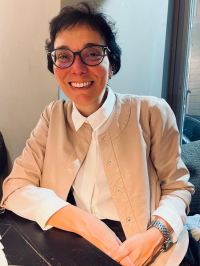 Day 2 – 3 December, 2024: 11:30-12:30 – Parallel sessions: Speaker – Breakout session 3. – Horizon Europe Cluster 2 and Societal Challenge 6: Inclusive, innovative and reflective societies – How to valorize the outcomes of successful Cluster 2 projects in service of reaching S3 goals
Day 2 – 3 December, 2024: 11:30-12:30 – Parallel sessions: Speaker – Breakout session 3. – Horizon Europe Cluster 2 and Societal Challenge 6: Inclusive, innovative and reflective societies – How to valorize the outcomes of successful Cluster 2 projects in service of reaching S3 goalsRoberta Ricucci is Full Professor of Sociology of Migration and Sociology of Islam at the University of Turin and affiliated at the University of Notre Dame (US), Center for the Study of Religion and Society.
Her research fields deal with youth, migrant children and cultural identities in migratory processes. Strongly involved in various worldwide scientific associations.
She has wide and varied experience of research both at national and international levels, several European, international and national projects.
 Day 1 – 2 December, 2024: 16:45 – 17:45 – Moderator – What is your story? Panel discussion
Day 1 – 2 December, 2024: 16:45 – 17:45 – Moderator – What is your story? Panel discussionDay 2 – 3 December, 2024: 9:30 – 10:30 – Panelist – Inter-dependence between economic growth, innovation and skills in the era of digitization and green transition: the regional perspective
Simone Rosini is team leader in the “fair green and digital transformations, research” unit of the “Directorate General for Employment, Social Affairs and Inclusion” (or DG EMPL). He studied economics at the universities of Turin, Freie Universität Berlin, Paris 12 and Modena and Reggio Emilia (Ph.D.). After working in a regional innovation centre, a think-tank and a consultancy, he joined the European Commission (DG EMPL) in 2017. He has been an author of several editions of the “Employment and social developments in Europe” report, while becoming the main contact point for research and innovation in DG EMPL.
Day 1 – 2 December, 2024: 15:45-16:45 – Smart Specialization strategy implementation
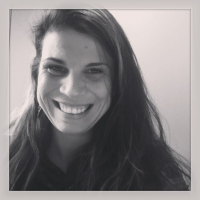 Day 2 – 3 December, 2024: 11:30-12:30 – Moderator at Breakout session 3. – Horizon Europe Cluster 2 and Societal Challenge 6: Inclusive, innovative and reflective societies – How to valorize the outcomes of successful Cluster 2 projects in service of reaching S3 goals
Day 2 – 3 December, 2024: 11:30-12:30 – Moderator at Breakout session 3. – Horizon Europe Cluster 2 and Societal Challenge 6: Inclusive, innovative and reflective societies – How to valorize the outcomes of successful Cluster 2 projects in service of reaching S3 goalsMina Stareva is a deputy head of unit responsible for health and societal transitions research policy and coordination; as well as for the integration of social sciences and humanities across Horizon Europe. Prior to this, Mina led the sector for gender equality in research and innovation, and has contributed to the development of the European Research Area.
Day 1 – 2 December, 2024: 13:00 – 14:15 – Welcome and opening speech
Day 1 – 2 December, 2024: 13:00 – 14:15 – High-level opening session, Flash presentation of Spanish presidency on priorities and results in smart specialization
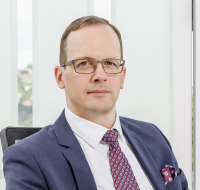 Day 2 – 3 December, 2024: 9:30 – 10:30 – Inter-dependence between economic growth, innovation and skills in the era of digitization and green transition: the regional perspective
Day 2 – 3 December, 2024: 9:30 – 10:30 – Inter-dependence between economic growth, innovation and skills in the era of digitization and green transition: the regional perspectiveDr. István Szabó earned his doctorate in 2018 from the University of Miskolc, Hungary, focusing on research infrastructures and their potential for fostering business collaboration. Beginning his career in 2011 at the National Innovation Office, he led the Research, Development, and Innovation (RDI) Observatory. Later, at the Ministry of Human Capacities, he developed strategic initiatives for Hungarian higher education and launched the Thematic Excellence Programme to encourage multidisciplinary cooperation.
From 2018 to 2023, Dr. Szabó served as Vice President for Science and International Affairs at the National Research, Development and Innovation Office (NRDI Office). He managed research grant programs, including the Cooperative Doctoral Programme and the New National Excellence Programme, while initiating the "Excellent Research Infrastructures" program and a related national platform. His work extended to coordinating international research infrastructure projects and developing Hungary's RDI and Smart Specialisation strategies.
As a researcher, Dr. Szabó specializes in innovation policy, research infrastructures, and scientometrics. He is the founder of the Innovation Section at the Hungarian Economic Association and a member of several academic boards. His accolades include the Golden Insignia of the Hungarian Students’ Associations and the Medal for Hungarian Prosperity.
Day 2 – 3 December, 2024: 13:30 – 14:30 Panel discussion: To space and beyond: Transferable skills for the space sector - needs, provisions, challenges
DAY 2 9:30-10:30 Panel discussion: Inter-dependence between economic growth, innovation and skills in the era of digitization and green transition: the regional perspective
 Day 1 – 2 December, 2024: 15:45-16:45 – Panelist – Panel discussion: Smart Specialization strategy implementation
Day 1 – 2 December, 2024: 15:45-16:45 – Panelist – Panel discussion: Smart Specialization strategy implementationRichard lives in Brussels and is an expert on EU policy, particularly in the area of research and innovation policy, regional policy, smart specialisation and regional economic development. Richard worked for both the Kent and then West Midlands regional offices in Brussels before becoming Director of the European Regions for Research and Innovation Network (ERRIN) between 2010 and 2017.
Since leaving ERRIN, he has continued to be engaged in European policy and with two colleagues, he is a founder member of Friends of Smart Specialisation, an informal group that aims to promote and encourage critical thinking around the concept of smart specialisation. Richard has been involved in and evaluated numerous European projects, moderated and presented in numerous European conferences and is currently Chair of the S3 Community of Practice Interregional Collaboration Working Group and also on the advisory board of the EU3DRES2 university alliance.
In his spare time, Richard is an enthusiastic walker and completed the Camino Santiago de Compostela, walking from Le Puy in France to Santiago over a ten year period.
Since leaving ERRIN, he has continued to be engaged in European policy and with two colleagues, he is a founder member of Friends of Smart Specialisation, an informal group that aims to promote and encourage critical thinking around the concept of smart specialisation. Richard has been involved in and evaluated numerous European projects, moderated and presented in numerous European conferences and is currently Chair of the S3 Community of Practice Interregional Collaboration Working Group and also on the advisory board of the EU3DRES2 university alliance.
In his spare time, Richard is an enthusiastic walker and completed the Camino Santiago de Compostela, walking from Le Puy in France to Santiago over a ten year period.
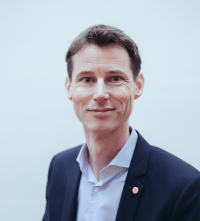 Day 2 – 3 December, 2024: 11:30-12:30 – Panelist at Breakout session 1. – Identifying the challenges and bottlenecks (e.g.: green transition, industrial transition, digitalization) that may affect the directions and expected goals of skills development; identifying related target groups and other stakeholders
Day 2 – 3 December, 2024: 11:30-12:30 – Panelist at Breakout session 1. – Identifying the challenges and bottlenecks (e.g.: green transition, industrial transition, digitalization) that may affect the directions and expected goals of skills development; identifying related target groups and other stakeholdersKlaas Vansteenhuyse is part of the founding team of the EU3DRES2 University Alliance, being one of the first created for universities of applied sciences. He worked for the Hogeschool UCLL (Belgium) as head International Office (2008-2018) and head of Educational & Student Services (2018-2024). Klaas Vansteenhuyse has been involved in numerous European funded projects, often focussing on internationalisation and on the advocacy of universities of applied sciences. He has been a member of various working groups at Eurashe, Leuven Mindgate and the Flemish Government.
Currently, he is involved in a research project on the materiality of educational objects. Having received a PhD in Archaeology from the UC Louvain (Belgium), this research forms an ambitious coupling of his interests in both education and archaeology.
Day 1 – 2 December, 2024: 14:45-15:15 – Speaker – Plenary session: Introducing the ETF Skills for Smart Specialization (S4S3) methodological approach
| About | Registration | Program | Speakers | Livestreaming | Accommodation | Getting here | Photos | Documents |
Updated: 28 March 2025






